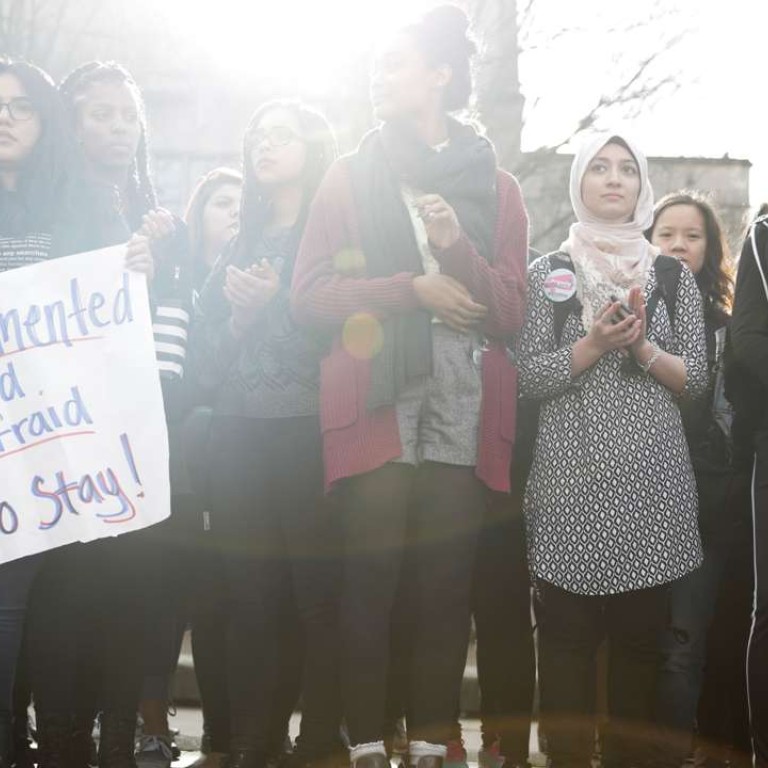
Can a civil disobedience movement ever succeed in Hong Kong?
Bernard Chan says while some examples of such resistance, like one in the US concerning illegal migrants, have merit, it is hard to see Beijing reacting positively to such pressure
Although events turned out differently, activists and the public learned about the principle of non-violent civil disobedience. We cannot rule out protests of this sort in the future if enough people in Hong Kong feel strongly about a sensitive issue.
Sweeping immigration crackdown looks to be top of Trump’s agenda
It was a humane and practical measure for young people who did not choose to go to the US, but had been raised there and were liable to deportation proceedings at any time. It also enabled US colleges and employers to provide opportunities to many talented and energetic young people. Only those with clean records are eligible. The policy has given over 750,000 the right to study or work without fear of sudden arrest (there could be as many as a million more).

Washington readies for horde of protesters for Trump’s inauguration
The election of Trump poses a challenge to many colleges. Should they just stand by and do nothing if the deferred action policy is reversed and federal agents arrive to round up students benefiting from the initiative? A “sanctuary campus” movement has sprung up across the US, demanding that colleges protect their undocumented immigrant students. Supporters believe they have the moral high ground.
The ‘sanctuary campus’ movement is a bargaining chip and has become part of a wider national debate ... It is not a pointless gesture to grab attention
On the other hand, the law is the law. Opponents of the policy say that it undermines the rule of law by allowing illegals to stay while law-abiding migrants wait for their visas overseas. Should colleges commit to helping law-breakers by offering them sanctuary?
College administrations are signing up to a document stating that the policy is “a moral imperative and a national necessity”. Many are pledging not to cooperate with immigration agencies – for example, by showing student records – unless compelled by court orders and warrants. This follows the example of “sanctuary cities” – like New York and San Francisco – which have barred their police from enforcing immigration laws.
The “sanctuary campus” idea is a warning that if Trump does scrap the policy, the authorities will meet resistance. No one is breaking any law as yet. Indeed, the colleges are generally careful to avoid saying they would do anything to expose themselves to criminal action or, in some cases, loss of funding. They plan not to cooperate with immigration officials. But college administrators would comply with warrants, for example.
Civil disobedience has its consequences
In Hong Kong, it is hard to see how civil disobedience could have a positive impact. Whether we like it or not, Beijing sees political reform in Hong Kong as a national issue. Actions like occupying the streets will not make the nation’s leadership more confident about reform – quite the opposite.
The challenge for Hong Kong is to move towards political reform in ways that make the central authorities feel more, not less, comfortable about change. Civil disobedience will not take us forward.
Bernard Chan is a member of the Executive Council

